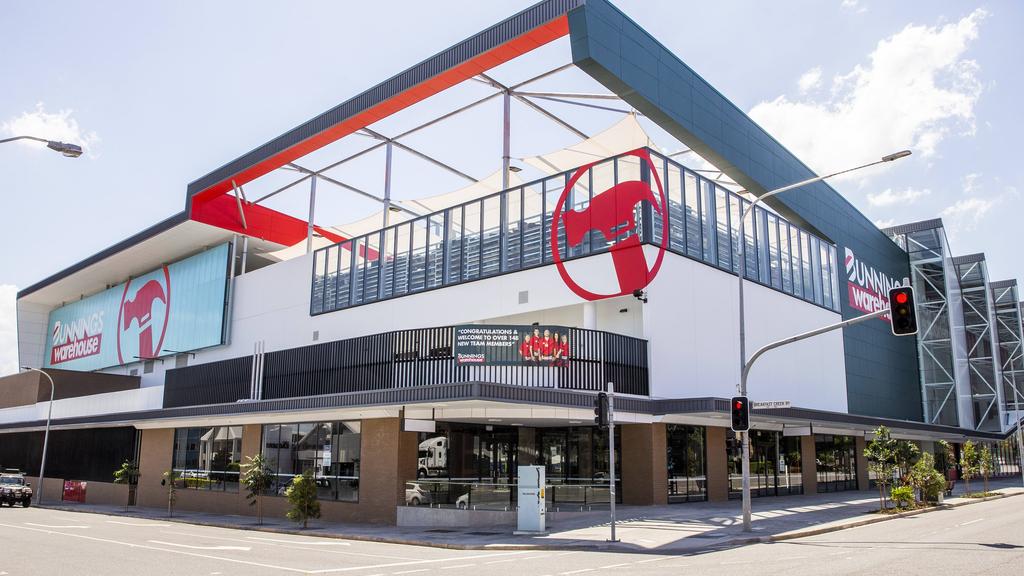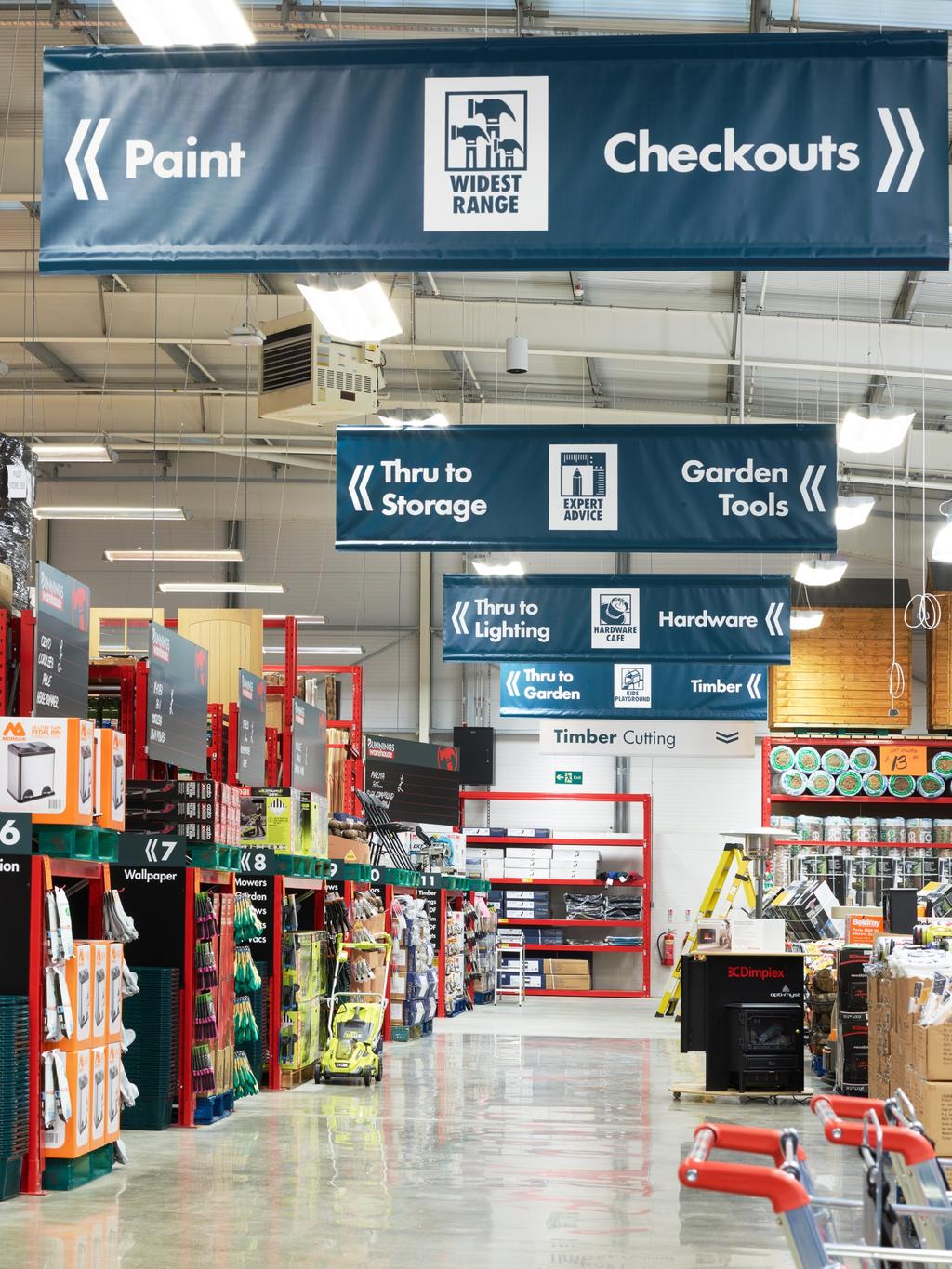Covid lifts demand for Bunnings warehouses and large-format retail

The chain’s stores are in hot demand with investors. Picture: AAP
Private investors and major property players are increasingly targeting Bunnings properties, as the hardware retailer’s strong performance during the coronavirus pandemic cements its investment appeal.
Several Bunnings warehouses have changed hands this year as large and small investors chase resilient assets with long leases to strong tenants that have performed well during Covid.
REA Group economist Anne Flaherty said the Wesfarmers-owned Bunnings appeared to have been largely immune from the fallout of the Covid-19 pandemic.
“Bunnings really has been the star of Wesfarmers,” Ms Flaherty said.
“They have been an extremely strongly performing network of stores.”
Bunnings investments were already highly sought-after before the pandemic, but Covid increased demand for the warehouses and large-format retail in general, on the back of the home improvement trend and housing boom.
“Even before the pandemic, Bunnings was performing really well and when the pandemic happened, we saw demand grow,” Ms Flaherty said.
“People were shopping at Bunnings more than in the past. Part of that was that there were more home renovations happening last year and more people doing their DIY projects.”
Ms Flaherty said the pandemic had increased the investment risk for commercial property classes such as offices and other parts of the retail sector.
“But if you have property that is tenanted by a business like Bunnings you can be very confident in the quality of that tenant. You can be confident that they’ll be able to continue paying their rent,” she said.
“Having said that, opportunities to purchase a building with a tenant like Bunnings in it aren’t opportunities that come up every day.
“When they do, they are in really high demand from investors who may be looking to diversify their portfolios or get a portfolio that has a mixture of assets with good reliable rental income.”
Institutional groups with a long-time interest in Bunnings have been active buyers of the warehouses during the pandemic.
Property investment management company Charter Hall, which started buying Bunnings stores in 2006, was behind the biggest deal, acquiring a $353m portfolio of six Bunnings assets in November.
Charter Hall now owns about 60 Bunnings sites after paying $49m for a Bunnings property in Baldivis, 45km south of Perth, last month.
The landholding, which is leased to Bunnings and pet products retailer PETstock, has a total gross lettable area of 15,443sq m and a site area of 34,000sq m.

They have been an extremely strongly performing network.
Property funds management group Acure Asset Management sold the property six years after purchasing it for $29.25m, when it was a Masters Home Improvement store.
Acure managing director Angelo Del Borrello said the sale made good sense for investors in Acure’s Hammersley Unit Trust in light of market conditions and historically low interest rates. “When Masters exited the market, we were able to negotiate a new lease agreement with Bunnings to come into the space, which was absolutely critical for our investors,” Mr Del Borrello said.
Savills Australia associate director, capital transactions, Barney Dear, who facilitated the off-market transaction, said it had garnered a record yield for Western Australia. “Generally, we are seeing significant investor appetite for long WALE (weighted average lease expiry) retail assets in WA and nationally,” Mr Dear said.
Launching the sale of an Adelaide Bunnings in July, Colliers national director of retail investment services James Wilson said 17 freestanding Bunnings Warehouse assets had sold across Australia in the past 18 months for more than $900m in total. That represented an average price of $47.41m.
He said the Colliers-managed sale of Bunnings Eastgardens in Sydney for $75m set the benchmark investment yield nationally at 4.15 per cent.
Property investment manager Newmark Capital now owns six Bunnings properties after buying the Eastgardens store in April. Newmark was also behind a February deal with Bunnings to develop a new $85m, three-level store in Melbourne’s Preston, due to open in May next year.
Colliers director (Queensland), retail investment services, Chris Maher said the pandemic had intensified the demand for core, defensive assets and the flight to quality retail assets such as single-tenanted investments with strong covenants.
“The strong transactions recorded for freestanding Bunnings Warehouse assets and proven resilience through Covid-19 is driving continued investor demand,” Mr Maher said.
Additional reporting: Megan Neil







